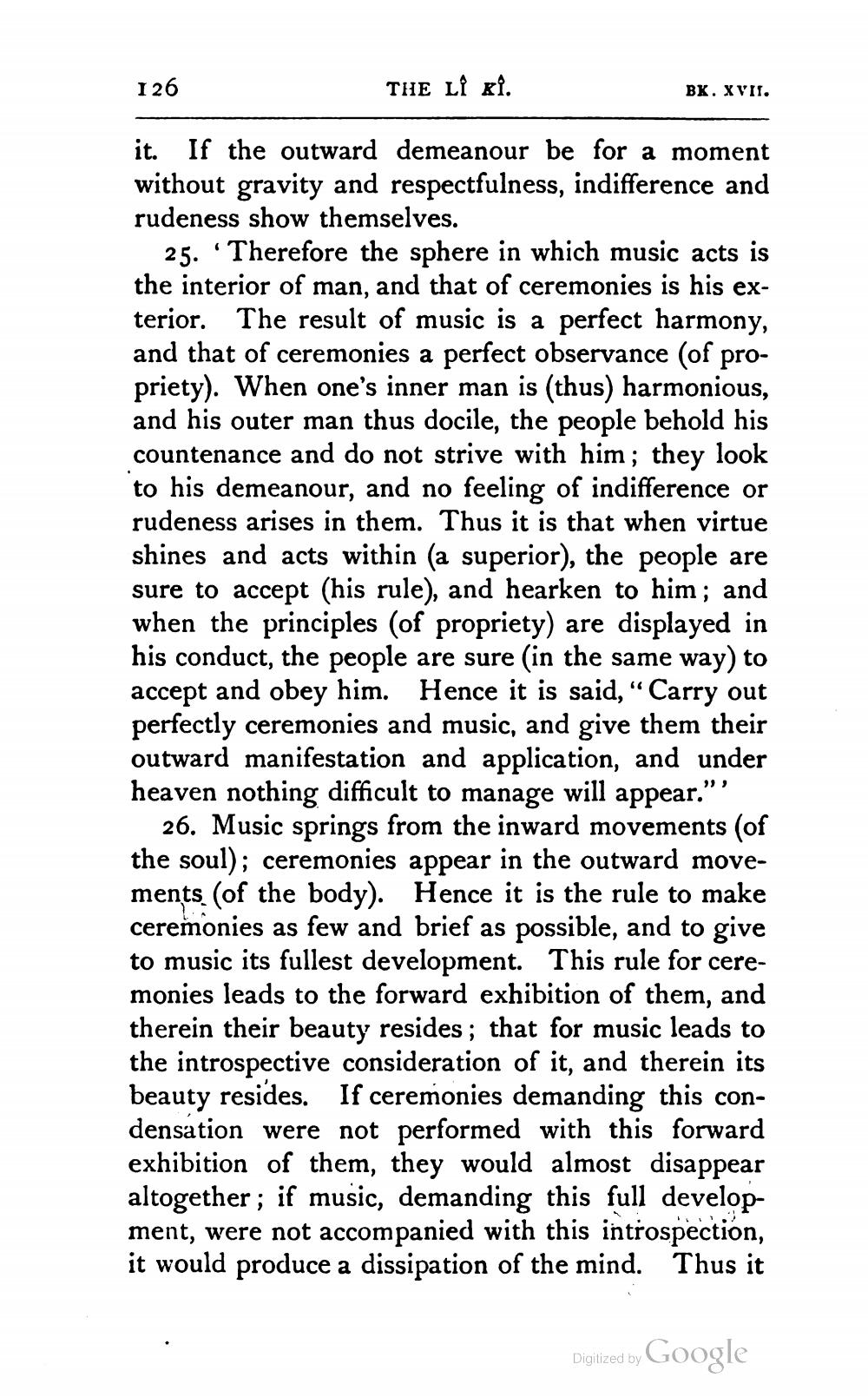________________
126
THE li xi.
BK. XVII.
it. If the outward demeanour be for a moment without gravity and respectfulness, indifference and rudeness show themselves.
25. Therefore the sphere in which music acts is the interior of man, and that of ceremonies is his exterior. The result of music is a perfect harmony, and that of ceremonies a perfect observance (of propriety). When one's inner man is (thus) harmonious, and his outer man thus docile, the people behold his countenance and do not strive with him; they look to his demeanour, and no feeling of indifference or rudeness arises in them. Thus it is that when virtue shines and acts within (a superior), the people are sure to accept (his rule), and hearken to him; and when the principles (of propriety) are displayed in his conduct, the people are sure (in the same way) to accept and obey him. Hence it is said, “Carry out perfectly ceremonies and music, and give them their outward manifestation and application, and under heaven nothing difficult to manage will appear."!
26. Music springs from the inward movements (of the soul); ceremonies appear in the outward movements (of the body). Hence it is the rule to make ceremonies as few and brief as possible, and to give to music its fullest development. This rule for ceremonies leads to the forward exhibition of them, and therein their beauty resides; that for music leads to the introspective consideration of it, and therein its beauty resides. If ceremonies demanding this condensation were not performed with this forward exhibition of them, they would almost disappear altogether; if music, demanding this full development, were not accompanied with this introspection, it would produce a dissipation of the mind. Thus it
Digitized by Google




